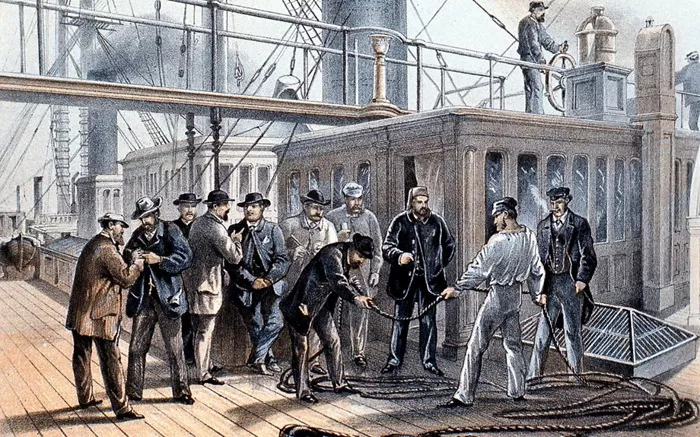January 7 has witnessed several significant events throughout British history. This article will explore these events in detail, providing a comprehensive overview of their historical context and implications.
What Happened on January 7 in British History?
1. The Fall of Calais (1558)
One of the most notable events that occurred on January 7 was the recapture of Calais by French forces in 1558. This marked the end of England’s last continental possession in France, which had been held since its capture in 1346 during the Hundred Years’ War. The English forces, led by the Duke of Guise, managed to oust the defenders of Calais, effectively concluding a long chapter of English territorial claims in France.The loss of Calais was a significant blow to England, both strategically and symbolically. For over two centuries, Calais had served as a critical port and a base for military operations against France. Its loss not only diminished England’s influence in continental affairs but also impacted national pride. The event is often seen as a turning point that shifted England’s focus towards its maritime empire and colonial pursuits rather than continental ambitions.
2. Death of Catherine of Aragon (1536)
On January 7, 1536, Catherine of Aragon, the first wife of King Henry VIII, died at Kimbolton Castle. Catherine was a pivotal figure in English history due to her marriage to Henry VIII and the subsequent religious and political upheaval that followed their separation.Catherine’s marriage to Henry began in 1509, but it became increasingly strained as Henry sought an annulment to marry Anne Boleyn. Catherine’s refusal to accept this annulment led to the English Reformation, where Henry broke away from the Catholic Church to establish the Church of England. Her death came just four years after their separation and was marked by significant mourning among her supporters.Catherine’s legacy is complex; she is often remembered for her steadfastness and commitment to her daughter, Mary I, who would later become queen. Her life and struggles highlight the intersection of personal and political conflicts during a transformative period in English history.
3. Francis Bacon Becomes Lord Chancellor (1618)
Another important event on January 7 occurred in 1618 when Francis Bacon was appointed as Lord Chancellor of England. Bacon was not only a prominent philosopher but also a statesman who played a crucial role in the development of empirical science and modern philosophy.His tenure as Lord Chancellor was marked by both achievements and controversies. Bacon advocated for reform within the legal system and promoted scientific inquiry based on observation and experimentation. However, his career faced challenges, including allegations of corruption that eventually led to his impeachment in 1621.Bacon’s contributions to philosophy and science have had lasting impacts, particularly his promotion of the scientific method. His appointment as Lord Chancellor underscores the importance of intellectual thought in shaping political landscapes during this era.
4. The Establishment of Transatlantic Telephone Service (1927)
On January 7, 1927, the first transatlantic telephone service was established between New York City and London. This technological advancement marked a significant milestone in communication history, allowing for real-time conversations across vast distances.The initial service was costly; a three-minute call would set a caller back approximately $45 (equivalent to about $550 today). Despite its high cost, this service revolutionized international communication and laid the groundwork for future advancements in telecommunications.The establishment of transatlantic telephone lines facilitated not only personal communication but also business transactions and diplomatic relations between nations. It symbolizes the growing interconnectedness of the world during the early 20th century.
5. The Khmer Rouge Overthrow (1979)
While not exclusively British history, January 7 also marks an important event related to global politics: the overthrow of the Khmer Rouge government in Cambodia by Vietnamese forces in 1979. This event had far-reaching implications for international relations during the Cold War era.The Khmer Rouge regime, known for its brutal policies and genocide against its own people, had created instability that affected neighboring countries, including Thailand and Vietnam. The Vietnamese invasion aimed to end this humanitarian crisis but also drew international criticism and complicated geopolitical dynamics in Southeast Asia.This event serves as a reminder of how local conflicts can have global repercussions, influencing foreign policy decisions and international humanitarian efforts.
Conclusion
January 7 has been a day marked by significant events in British history that reflect broader themes such as territorial loss, personal sacrifice, intellectual advancement, technological innovation, and global politics. Each event contributes to our understanding of how historical narratives are shaped by individual lives and collective actions across time.These events illustrate not only pivotal moments within Britain but also how these moments resonate within larger historical contexts—impacting subsequent generations and shaping national identity. As we reflect on these occurrences from various angles—political, cultural, technological—we gain insight into the complexities that define British history and its evolution over centuries.
Related Topics:

